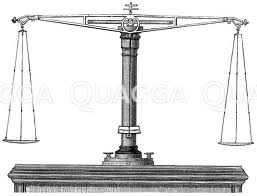Getting Started
- If it's your first visit, you might want to start here:
- #1 A good day to live!
New Posts
- New interesting posts available! (mrwoodpecker, 17.Aug.12)
- TV - the (Un)Happiness-Effect (mrwoodpecker, 02.Jun.12)
- Guide to Happiness & Money: Do you need... (mrwoodpecker, 24.May.12)
- Early Retirement Extreme - Yes or No? (mrwoodpecker, 17.May.12)
- Maslow's pyramid of needs (mrwoodpecker, 16.May.12)
New Comments
Links
Navigation
Meta
Search
Archive
- March 2026MonTueWedThuFriSatSun12345678910111213141516171819202122232425262728293031
RSS
Sunday, 15. April 2012
#6 More money? Important or unnecessary?

(Well, some spare money is not that bad, 'cause it can bring you here. But how much do you really need?)
In the last post, we discussed the mistakes many people make around the role of money in their lives.
Let’s start with mistake 1:
It is not money one must maximize in life, but happiness.
Money sure is one good means to acquire happiness, by allowing consumption, travel, free time etc. But generating money also costs happiness by getting stressed, having no time for friends and family, fearing of losing it etc.
So we have to look at the whole bundle: How much money can I easily generate without sacrificing too much happiness?!
How can I create happiness without any costs at all?
How do I balance creation of happiness and creation of money?
What really does make me happy?
Then there is mistake 2:
Ever more money is not making you ever more happy.
This is not some esoteric coming from my mind and I sure would not decline a lottery win (though I would be careful whom to tell) but it is scientifically proven, by a relatively new and very thrilling branch of economics, called economics of happiness. These guys go back to the roots of mistake 1 and ask:
What does make people happy?
You can google it and later I will add some further reading, but here is in essence what they say about happiness and income:
- Income matters to a certain degree. If you have a very low income, improving your income improves happiness.
- From a certain level on income does not matter anymore. More income will then boost your happiness for a short time only (ca. 3 months), then your happiness level returns to where it was before.
If you ever notices that a pay-raise gave you a kick for a short time only and after some time you thought:”Well that was nice, but now a bit more again would be adequate” – then you are already about the threshold. In economic terms then your situation is: Your long-term additional happiness from additional money is zero. - Same holds for consumption, the kick from consumption is only short. While a new car is really great in the first months (yeah, I know, I bought a fairly new one last year!), the joy of riding it declines steadily until ½ a year later your daily commuting is as annoying as before. (…Was the same for me unfortunately.) But then, the money is gone, so spend it carefully!
- Your relative income matters more than your absolute income.
This means if you live in a medium neighborhood you will feel more happy with your income than if you move to a posh area with the same income.
In other words: We always compare ourselves to others. So be careful whom you spend time with. Don’t wish to quickly to enter the hip “sex and the city”-society, as you might feel quite miserable there. - Changes in income are what you recognize more than it's actual level.
This it similar to what I wrote before. It sounds contra-intuitive, but in terms of happiness its much better to start on a low level, and slowly but constantly move up, instead of being born rich or to win the jackpot that catapults you among the rich.

But let’s stop for the moment, as I really need some idling now… ;)
Come to than in a later post…
Cheers,
woodpecker
Sunday, 15. April 2012
#5 The meaning of life
 |
Woao, this is a hell of a title for a post, isn’t it? Maybe a bit too big shoes to walk in? Maybe, but however, I just had no other idea to introduce what I am trying to write: What the hell are the important things in life? Well, lets start out with a bit of economic theory: |
| (First one to tell my the title of the book referred to gets a free guest post!) |
Background: I turned to economics some years ago to learn better how to live a good life. I learned a lot there, and certainly improved massively in handling my money and better understand economic affairs (happy to share this if anyone requests), but no, they could not help me with the way to live your life. Reason is that modern economics is really on the wrong path (they are starting to understand that only slowly).
However, what does economic theory say?
The part of economic theory that’s dealing with the individual is called Microeconomics, in contrast to Macroeconomics.
 |
| (The first one to eat 5 of those gets...well, nothing. Stupid enough.) |
This is a fairly vague concept but it makes a lot of sense and is worth studying.
Problem is that it’s difficult to measure utility. But economic mainstream since the 90s somehow lost track of common sense and one of the results were that very often utility was set equal to money, and economic output or GDP became the measure for “successful politics”.
This is the first mistake regarding the value of money:
Many people (and politicians and consultants and managers) think that maximizing money equals having a good life.
This is incorrect. Correct would be:
Happiness is key…
…and therefore the amount of happy (or content =”Zufriedenheit”, as always happy seems unrealistic) time that you spend in your life. No matter where the happiness or contentment comes from, be it consumption, hanging out, listening to good music, having sex, travelling or just starring at a wall…whatever you like.
The second mistake regarding the value of money
The second mistake is that most people, and surprisingly many economists as well, forget about the above mentioned law of decreasing marginal utility.
Thus they incorrectly assume that a lot more money will give them a much better life.
Correct would be:
Money is not bad, but it comes with a cost.
Thus is depends if more money (and the associated costs) is better or if the effort to obtain that money is to high, so that you'd rather sty with less.
This sounds easy and logically, yet it ist surprising how often this fact is ignored by people when they are dealing with money.
And one must be very careful not to fall in the "more money is always better"-trap as well.
We will discuss this in post #6.
#4 The right balance
 Ever read about the hard-core early-retirees in the internet?!
Ever read about the hard-core early-retirees in the internet?!Wow, these are tough guys, saving every cent twice and reduce their financial needs to a bare minimum.
I admit, it's great fun reading their stories, and there is lots to be learned about a different angel how to look at the world and their way to financial freedom, so you should pop in and visit them at one of the links in my link-list.
But personally and being a starter in the world of downshifting, I'm not there yet, it's just too...hm, extreme for me.
It's certainly very efficient and maybe also rewarding to entirely give up cars, holidays, your job and almost anything that costs money to downshift to a level of bare minimum spending (sometimes this extreme form of downshiftig is called simple living). But man, I don't know what you think, but I still enjoy having diner out once in a while, spend money in a cinema or pub; and above all my family enjoys travelling far and long- certainly not the most inexpensive hobby ;-).
On the other side there are these hectic guys who work their asses off, who can't look anyone in the eyes for more than two seconds, who are making a steep career (or trying to), get their first depression or heart-attack at age 40 and save money for (hopefully) being independent later.
I think this is a poor choice either. Why?
Because this is what happens:
- Work can easily get work for its own's sake. The more you work and stress yourself, the more you forget how really to live and what for you are doing all of this shit.
- You are sacrificing time, health and social ties to family and friends in what maybe some of the best years of your life!
- You adapt to the higher levels of income and wealth that you are generating and that you see around you in the "higher ranks" of the company/society. Thus you will not be able to appreciate this any more.
- Your returns are uncertain. Might well be that inflation, tax, bad investments or health troubles will take away the joy of spending your money later.
It is better to live here and today!
So here is something that we might learn from the Buddhists:The best way is the middle way!I think this holds true for many aspects of life when looking for independence, freedom & happiness. |  |
| (I'm not a Buddhist, but this Buddha sure was a clever guy I'd say...) |
It's not necessary to work like hell to finance your happiness and financial freedom.
And its not necessary to cut down to the bare self-sustaining minimum in one big step. Maybe later, but first steps should be realistic.
Enjoy your day and see you at post #5.
woodpecker
Friday, 13. April 2012
#3 What does it need for an independent and happy life?
Let's quickly outline the main ingrediences of hapiness that we probably will touch again and again in the posts to follow.
To live a satisfying, independent and happy life you basically need three things:
• Money
• Time/Freedom
• An idea what to do with your freedom

(...not to bad to have some of this...)
Let’s be frank about this: Without any money, life probably is not much fun. There might be exceptions, but me personally is not one of those.
Therefore the important question is: “How much money do you really need for a good life?”
My answer is: “Much less than you think! And probably even less than you have already!”
Why is this the case?
The first reason...
... is decreasing correlation between money and well-being. That means starting from zero, having some more money will increase your happiness massively. This is obvious to most people.
But if you already have a certain amount, additional money will not make you any happier in the long run.
This is not very obvious to most people, and even I have to remind myself from time to time about this fact.
A fact that is indeed scientifically proven, but I’ll come to that later.
The second reason...
... is that you probably might have enough money already, but you spend it inefficiently and on the wrong things.
If you look at it closer you will be surprised, how much money you can actually save easily without noticing any difference in the quality of your life.
Anyway, looking into saving money is a bit less sexy than spending money, thus we too often avoid to scutinize our spendings.
But if you recall that every needless spent Euro or Dollar you saved is a Euro you can spend on something else, its easier to understand that saving and efficiency in spending is absolute key to financial independence.
I guess every financially successful person among you or others will agree.
So I'll write a lot about money, as it is undoubted the fuel for our independence. I’ll write later how I reduced my families’ turnover by more than 20% without any loss in perceived life quality. And we will find out where your money is eaten away without any additional quality added to your life.

(...look at this guy! He probably has all the time in the world...and beyond)
If I had to rank, I’d say that time in the end is even more important in life than money.
Where money is the fuel, time is the car. Without a car there is no use for fuel.
Time is the one resource that is definitely limited for everybody and you have only little means to expand it (one is staying healthy, but we come to that…).
It is thus absolutely crucial to maximize the amount of time you have available and under your control and that you enjoy that time as much as you can.
That means we have to minimize the time that we spent being bored, annoyed, anxious, stressed and as well time that we don’t feel anything at all because we are working like a robot and without having fun.
As we have to spend quite some time to make our living, I probably will spend a lot of posts on “How to earn sufficient money in as little time as possible and with as much fun as possible”.
But apart from your job, there are also many other parts of your life where you can save tons of wasted time - those will be touched as well and I am looking forward to your comments and suggestions.
Now that we have sufficient money and time at hand, the magic equation begins to work:
Money + Time = Freedom

(one of the more simple ideas what to do with your time...but maybe not the worst!)
Money and Time brought you freedom.
But what to do now with your new freedom?
This is an important thing to think about from the beginning! (And many people unconsciously shy away from freedom exactly because they don't know what they should do with it)
Good thing is: There are many things to do in this world. But coming right out of the treadmill, many people need some time to find out what to do with themselves. I will have some suggestions…and I'm sure you will have even more that I will be happy learning about.
Let me say one thing already: In my view social ties and an open mind are very important! And there it comes back to time, as many people simple lack time to build their social ties and open their minds while still working in the treadmill…
Have a joyful day and see you later...at post #4
To live a satisfying, independent and happy life you basically need three things:
• Money
• Time/Freedom
• An idea what to do with your freedom
Lets first start over with money:

(...not to bad to have some of this...)
Let’s be frank about this: Without any money, life probably is not much fun. There might be exceptions, but me personally is not one of those.
Therefore the important question is: “How much money do you really need for a good life?”
My answer is: “Much less than you think! And probably even less than you have already!”
Why is this the case?
The first reason...
... is decreasing correlation between money and well-being. That means starting from zero, having some more money will increase your happiness massively. This is obvious to most people.
But if you already have a certain amount, additional money will not make you any happier in the long run.
This is not very obvious to most people, and even I have to remind myself from time to time about this fact.
A fact that is indeed scientifically proven, but I’ll come to that later.
The second reason...
... is that you probably might have enough money already, but you spend it inefficiently and on the wrong things.
If you look at it closer you will be surprised, how much money you can actually save easily without noticing any difference in the quality of your life.
Anyway, looking into saving money is a bit less sexy than spending money, thus we too often avoid to scutinize our spendings.
But if you recall that every needless spent Euro or Dollar you saved is a Euro you can spend on something else, its easier to understand that saving and efficiency in spending is absolute key to financial independence.
I guess every financially successful person among you or others will agree.
So I'll write a lot about money, as it is undoubted the fuel for our independence. I’ll write later how I reduced my families’ turnover by more than 20% without any loss in perceived life quality. And we will find out where your money is eaten away without any additional quality added to your life.
Then we come straight to Time…

(...look at this guy! He probably has all the time in the world...and beyond)
If I had to rank, I’d say that time in the end is even more important in life than money.
Where money is the fuel, time is the car. Without a car there is no use for fuel.
Time is the one resource that is definitely limited for everybody and you have only little means to expand it (one is staying healthy, but we come to that…).
It is thus absolutely crucial to maximize the amount of time you have available and under your control and that you enjoy that time as much as you can.
That means we have to minimize the time that we spent being bored, annoyed, anxious, stressed and as well time that we don’t feel anything at all because we are working like a robot and without having fun.
As we have to spend quite some time to make our living, I probably will spend a lot of posts on “How to earn sufficient money in as little time as possible and with as much fun as possible”.
But apart from your job, there are also many other parts of your life where you can save tons of wasted time - those will be touched as well and I am looking forward to your comments and suggestions.
Now that we have sufficient money and time at hand, the magic equation begins to work:
Money + Time = Freedom
Bringing us straight to “An idea what to do with your freedom”

(one of the more simple ideas what to do with your time...but maybe not the worst!)
Money and Time brought you freedom.
But what to do now with your new freedom?
This is an important thing to think about from the beginning! (And many people unconsciously shy away from freedom exactly because they don't know what they should do with it)
Good thing is: There are many things to do in this world. But coming right out of the treadmill, many people need some time to find out what to do with themselves. I will have some suggestions…and I'm sure you will have even more that I will be happy learning about.
Let me say one thing already: In my view social ties and an open mind are very important! And there it comes back to time, as many people simple lack time to build their social ties and open their minds while still working in the treadmill…
Have a joyful day and see you later...at post #4
#2 Independence is easier than you think!
Remember that despite all we live in great times. Most of us enjoy levels of wealth an possession that our ancestors were not able to dream of! We have access to means of leisure and information that are fantastic compared to what was there 50 or even 20 years ago – let alone the thousands of years before. You can easily live a better, healthier, and more independent life today than a king did in the old ages.
But why is it then that so many today are still stressed and unhappy and feel out of control of their lives?

• We let others take too much control of our lives and do too much to please the wrong people
• We dare too little and are much more anxious than necessary
• We compare too much to others and spend too much money unnecessarily
• We concentrate too much on being confirm and act by standards set from outside
• We work too much and live too little
If you are one of the many people who somehow feel similar, it is time to start on the adventure of living your life today:
• Put away anxiety; Take control of YOUR life, make yourself free from what others think
• Find out what YOU want and live your life that way instead of living it the way OTHERS want you to live
• Think about what is important for YOU and how much money you really need for this
• Learn how to save lots of your money and to spend the rest more efficiently
• Learn to enjoy the free things in life and to improve (downwards!) on your working hours and expenditures while improving upwards on your leisure time
I just belief it makes sense to spend some time in life thinking about the most important thing:
Your Happiness.
And I think we all can learn from others how to improve our happiness, because we all have different strenghts and weaknesses when it comes to this topic.
This is was this blog is for:
An exchange of ideas on independent living and happiness.
Comments and Guest posts are highly welcome, just let me know if you'd like to add a post!
See you at post #3 to set course and leave the harbour.
But why is it then that so many today are still stressed and unhappy and feel out of control of their lives?
Some reasons are:

• We let others take too much control of our lives and do too much to please the wrong people
• We dare too little and are much more anxious than necessary
• We compare too much to others and spend too much money unnecessarily
• We concentrate too much on being confirm and act by standards set from outside
• We work too much and live too little
If you are one of the many people who somehow feel similar, it is time to start on the adventure of living your life today:
• Put away anxiety; Take control of YOUR life, make yourself free from what others think
• Find out what YOU want and live your life that way instead of living it the way OTHERS want you to live
• Think about what is important for YOU and how much money you really need for this
• Learn how to save lots of your money and to spend the rest more efficiently
• Learn to enjoy the free things in life and to improve (downwards!) on your working hours and expenditures while improving upwards on your leisure time
I just belief it makes sense to spend some time in life thinking about the most important thing:
Your Happiness.
And I think we all can learn from others how to improve our happiness, because we all have different strenghts and weaknesses when it comes to this topic.
This is was this blog is for:
An exchange of ideas on independent living and happiness.
Comments and Guest posts are highly welcome, just let me know if you'd like to add a post!
See you at post #3 to set course and leave the harbour.